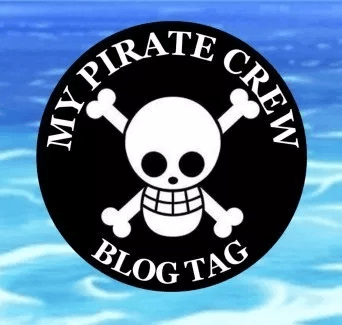Chris has touched on topics around anime blogging here before. I decided to do my own take on the subject. This will be the first in a series of posts about what I’ve learned from blogging for the last five years or so on various platforms. It will cover a range of topics, from what platforms to use to how blogs can make money to how social media and blogging can reinforce one another.
But lets start at the beginning. If you want to start a blog, you might (or might not)have some idea of your blog’s premise. Whether it be a Japanese pop culture blog, a reflective personal blog, or a blog about fly fishing, every blog has a premise, an underlying theme that the topics of individual posts revolve around. It can seem overwhelming at first to try to decide from among the many possibilities.
One good way to determine what exactly to blog about is to sit down and make a list of potential blog premises. List everything that you can think of, including things that seem off the wall. Then, reread the list and cross out the entries that your gut says just don’t feel right.
Next, take the ideas that survived the cull and write each one on the top of a piece of paper. Brainstorm potential blog post ideas for each one, noting which premise you have more enthusiasm for and that generates the most ideas. You want an idea that you like but that also has a lot of leeway in terms of subject matter. For example, Japanpowered started more as an anime review blog, and over time it began to encompass Japanese culture as a whole. The premise has held up for three years and more than three hundred posts, with many more to come.
During this process, you might find that you hit on an idea your really like, but it feels like it doesn’t have a wide enough subject matter to stand the test of time. If that’s the case, look at ways to broaden its scope. For example, my history blog, Oddly Historical, was originally intended as a blog devoted to weird science history. However, while that was a wide area, I decided that expanding my premise to include all of weird history was a better idea. This would give me more flexibility to pursue whatever my whim feels like pursuing. So far, I’ve managed to stick with the blog for a year and a half, and it’s still going strong.
Picking a good premise for a blog is important for a number of reasons. It gives your writing focus and makes it far easier to determine what you want to write about any given day. It also allows you to zoom in on a topic you enjoy, which will generate more passionate writing, which will in turn attract like-minded people to your blog.
While brief, this post will help you at least start narrowing down your ideas for a blog premise. Basically, you don’t want a premise that is too narrow, because you won’t be able to find enough subject matter to write about. You also don’t want a premise that is too broad, because your blog will meander and the abundance of choices will make it too hard to pick subjects for individual posts. Also, your audience won’t know what your blog is about, which makes it hard to gain a following. It is better for a premise to be focused, but flexible. Narrow, but broad enough that you can have some wiggle room to pursue other topics that spark your interest as you continue writing.
Next time, I will talk about different blogging platforms. Trying to decide which platform is right for you can be a bit of a pain, especially if you’re trying to decide whether or not you want to self host (I’ll explain what that means too.) Until then, take some time to think about what blogs you could see yourself writing.


